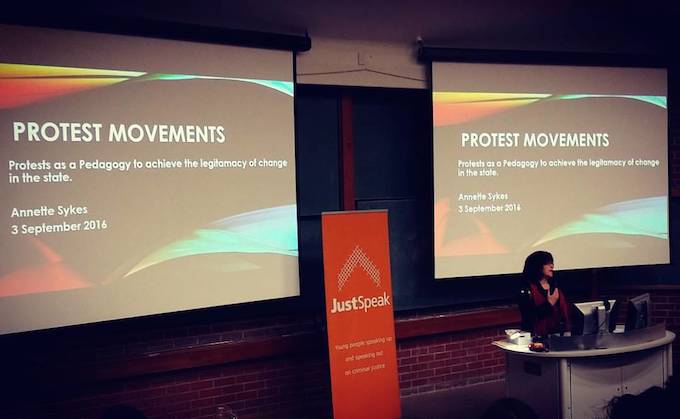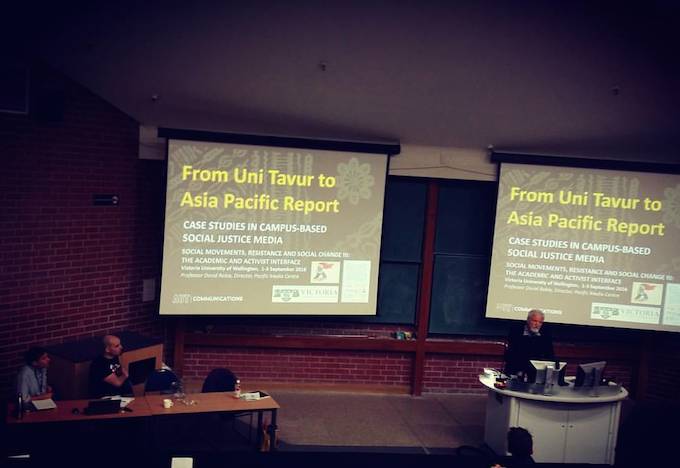
By Sue Bradford
For decades activists and intellectuals as diverse as Bruce Jesson, Annette Sykes, Brian Easton, Jane Kelsey and Bryce Edwards have lamented the lack of any progressively oriented policy institution capable of mounting a serious challenge to the neoliberal hegemony which has dominated New Zealand’s political life since the 1980s.
The NZ Business Round Table, the Maxim Institute, the NZ Institute and more recently the NZ Initiative have all played major roles as think tanks influencing and advocating on economic and social issues.
!["What’s different about this is it is very geared to a kaupapa that is highly political, that is about challenging the very structures of our society, very clearly grounded in economic and social and ecological justice and in a [Waitangi] treaty and tino rangatiratanga kaupapa," says Sue Bradfod in an interview with Radio Waatea.](https://asiapacificreport.nz/wp-content/uploads/2016/09/Sue-Bradford-300x208.png)
When I commenced doctoral research (2010 – 2013) exploring the reasons why we had no major left think tank in New Zealand, two of the most frequent responses received were that we’d never succeed because we don’t have the money and because the left is too fragmented and factionalised.
On the question of money, there is no question that ESRA is very much on the back foot. There is no secret source of funding for ESRA and so far no substantial donors have emerged, although of course such support will always be welcomed as long as our kaupapa remains uncompromised.
What has enabled us to commence and sustain the project so far has been the tremendous goodwill, time and commitment shown by a large group of skilled activist and academic volunteers, backed by a comparatively low but steady stream of donations and automatic payments from supporters.
We don’t have enough money, but we make the most of what we have… and every dollar you contribute is another step towards our sustenance and growth.
At the core of ESRA’s being we are the opposite of the major think tanks mentioned above. While we don’t have their financial resources, we do have the ability to harness and nurture a collective determination to build a counterhegemonic institution capable of quality research, acute comment, and the generation of lively public debate and thoughtful policy development.
In touch with realities
We will become a very different kind of think tank to those which already exist, grounded in the unions and community-based organisations whose interests we wish to serve, and closely in touch with the realities of life for the ever growing numbers of people who are paying the price in poverty, homelessness, alienation and despair for New Zealand’s love affair with neoliberal capitalism.
The second barrier raised to the potential development of a major think tank on the left was that traditional left factionalism had the potential to impede such a project right from the start. This has not proved to be the case at all. In the slow, careful process of establishing ESRA we have aimed to put a stake in the ground, inviting those who support the initiative to become part of it, but not seeking to colonise or take over people and organisations whose political interests lie elsewhere.
ESRA in fact looks forward to the day when other substantial left think tanks will emerge. Meanwhile, we will always welcome debate and interaction with other entities, no matter their place on the political spectrum.
It is cautious, deliberative work building an organisation without major funding support. Our ability to progress all the activities in which we would ideally like to engage is inhibited by a lack of paid staff and resources.
But we have come a long way already and feel sure that our current model of quiet, determined long-haul organising will lay the groundwork for a thriving ESRA, working for the better, more hopeful future to which we are committed.
Sue Bradford is a former Green MP, researcher and activist. She gave this address at the launch of ESRA at the Counterfutures conference at Victoria University of Wellington on Friday night.
- ESRA – Economic and Social Research Aotearoa
- Counterfutures – left thought and practice Aotearoa
- Talkin’ bout a revolution, in NZ – Bryce Edwards
- Sue Bradford talking in a Radio Waatea interview
- The first real left-wing think tank in NZ
- ESRA ‘a lemon’ – Chris Trotter
















































I would add to Malcolm X’s quote , that the media have the power to ignore any news occurrence that they want kept from the public. For example, we the public are never told about the many Palestinian journalists who are imprisoned as part of Israel’s policy of administrative detention . As for the many, very frequent, crimes against Palestinians, including children: our media’s agenda reminds me of Harold Pinter’s quote “It didn’t happen. Even while it was happening , it didn’t happen.”
Comments are closed.